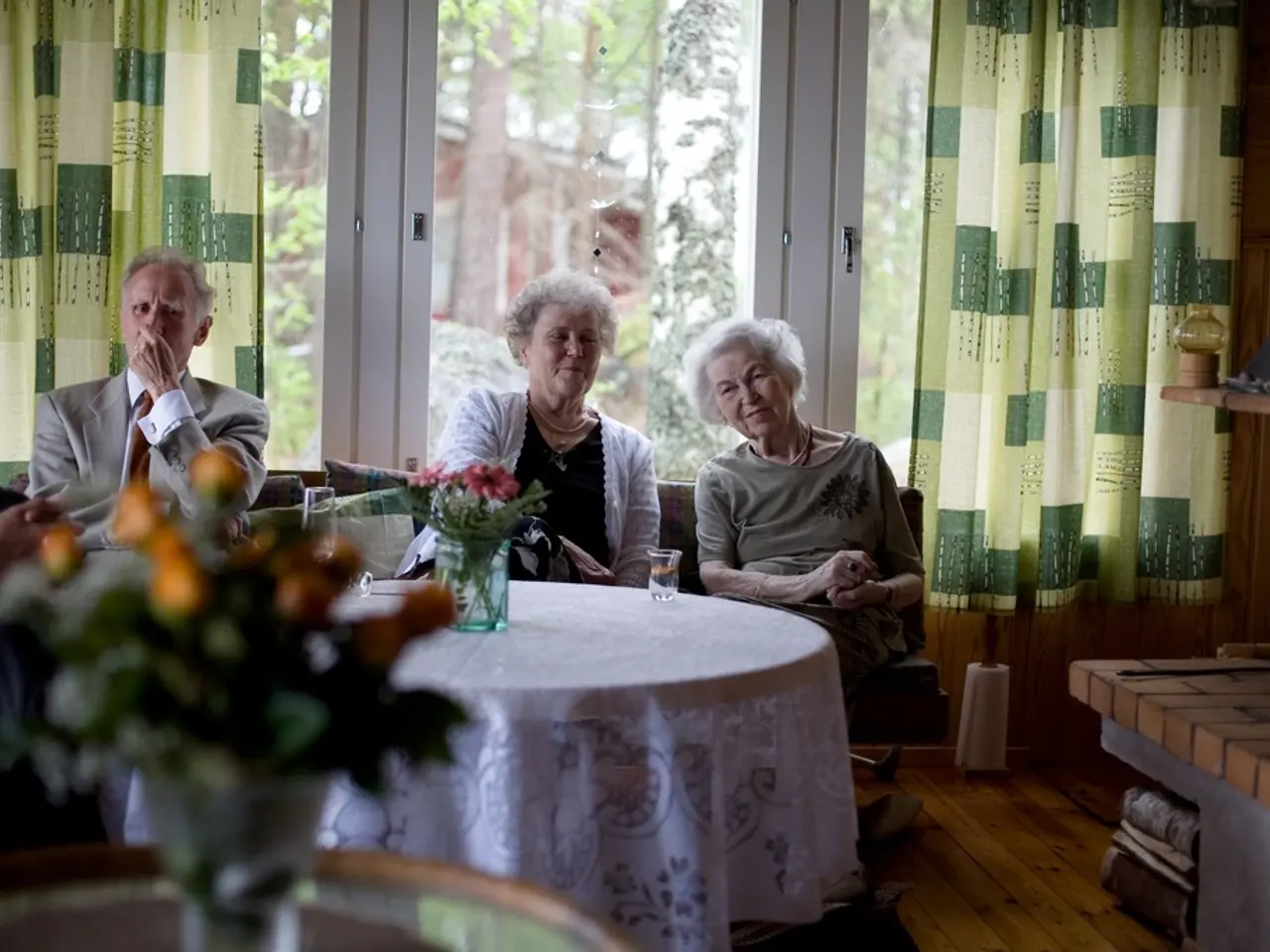Frequent Struggles Encountered by Seniors in Residential Care Facilities
In residential facilities known as nursing homes, designed for the elderly or disabled, a complex web of experiences unfolds. While these institutions offer essential care and services, they also present unique challenges for their residents.
One of the most pressing issues is loneliness. Despite the presence of other residents and dedicated staff, many elderly residents report feelings of isolation and solitude. This may be due to a variety of reasons, such as shyness, egocentrism, or fear of abuse.
Another concern is the limited freedom for entertainment and travel. Residents are often required to follow a set timetable for waking up and sleeping, and their meal choices are restricted to those provided by the nursing home. This lack of personal autonomy can contribute to feelings of dissatisfaction and frustration.
Privacy is another area where nursing homes fall short. With shared living spaces, residents often have little to no privacy, which can impact their emotional well-being and sense of independence.
However, it's important to note that nursing homes play a crucial role in providing care for those who cannot be cared for by their families or have no family. Services offered include food and meals, laundry, assistance with bathing, toileting, and walking.
Sadly, cases of physical and emotional abuse by nursing staff have been reported. This is a serious issue that undermines the very purpose of these institutions – to provide a safe and nurturing environment for the elderly.
The cost of senior care in nursing homes is another significant concern. The expenses depend on factors such as age, health, food, utilities, home nursing care, and the level of independent or assisted living required. This financial burden can be an additional strain on families.
It's worth mentioning that while some nursing homes charge for their services, others offer charity and do not charge. However, detailed data about the frequency of nursing homes in Germany that do not charge care fees and specifically accommodate seniors without their own home or financial means is not readily available. Generally, nursing homes require payment unless residents qualify for social assistance or welfare programs, but fully free care facilities for such seniors are rare.
Lastly, it's important to acknowledge that caregivers in nursing homes strive to provide love and affection, but the nature of their work may not allow them to offer the same level of emotional connection as family members. This can leave some residents feeling unloved and neglected, despite the best intentions of the caregivers.
In conclusion, while nursing homes play a vital role in caring for the elderly, they also present challenges that need to be addressed. Efforts should be made to ensure the physical, emotional, and social well-being of residents, and to provide them with the dignity and respect they deserve.
Read also:
- Connection Between ADHD and Trauma?
- West Nile Virus detected in Kentucky for the first time; authorities advise locals to adopt safety measures
- Microcosmic Universe Within Humans: Potential Secret to Human Longevity, Scientists Speculate
- Pharmacy Bachelor's Degree: Career Overview, Educational Requirements, Essential Skills, Job Prospects, Choices, Future Trends, Obstacles Encountered





